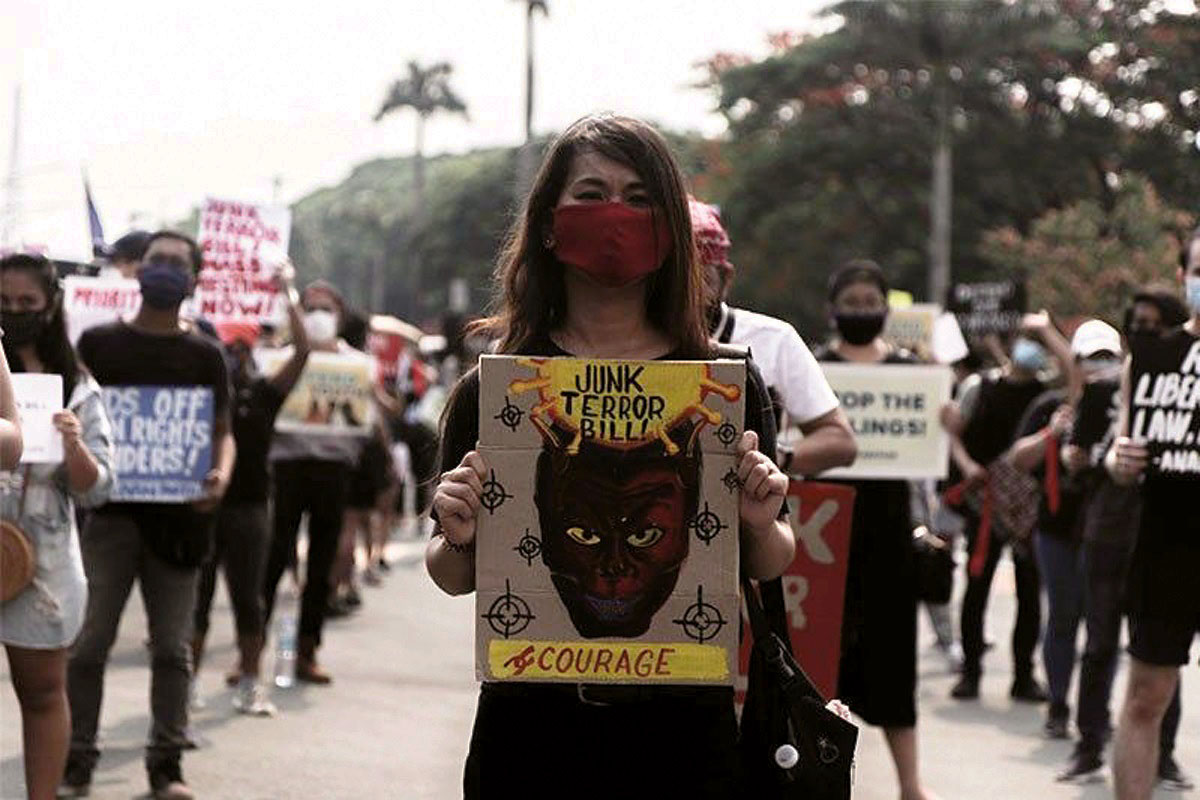
THE Philippines’ Anti-Terrorism Act of 2020 will undergo additional review from the country’s Department of Justice before it is signed into law by President Rodrigo Duterte.
The DOJ on Friday, June 5 announced that it will scrutinize and comment on the proposed anti-terrorism law (House Bill 6875).
“Whenever an enrolled bill is submitted to the President for approval, his office refers the bill to the concerned government agencies for comments,” said Justice Secretary Menardo Guevarra.
He added that all of the comments will be consolidated and delivered as recommendations to the president.
However, Guevarra said he would not comment on the bill until he receives a copy from Malacañang.
“The DOJ will give its comments on the enrolled anti-terrorism bill once it is referred to us by the Office of the President upon transmittal by the Congress,” he told reporters.
The House of Representatives on Wednesday, June 3, approved HB 6875, which was certified as urgent by the president, on its third and final reading.
A total of 173 lawmakers voted to pass the measure, while 31 voted against its passage. On the other hand, 29 others abstained.
The bill grants any law enforcer to arrest and detain, without a warrant, “a person suspected of committing any of the acts” punishable under the measure for 14 calendar days, extendable by 10 days. The suspected “terrorist” can also be placed under surveillance for 60 days, extendable by up to 30 more days, by the police or the military.
Any person who will propose, incite, conspire, participate in the planning, training, preparation, and facilitation of a terrorist act; as well as those who will provide material support to terrorists, and recruit members in a terrorist organization will also be penalized by life imprisonment without the benefit of parole.
Meanwhile, anyone who threatens to commit terrorism, and those who propose any terroristic acts or incite others to commit terrorism, will suffer imprisonment of 12 years.
This goes the same for anyone who will voluntarily and knowingly join any organization, association or group of persons knowing that such is a terrorist organization.
House Speaker Alan Peter Cayetano came to the defense of the bill amid the backlash it is getting from netizens and rights groups alike.
“Let me make that clear ha. We agree with you. Ang aktibismo po ay hindi terrorism (Activism is not terrorism). We want to promote activism… Activism is essential. Hindi magbabago ang mga dapat baguhin sa ating bansa ‘pag walang aktibismo (The necessary changes won’t happen in our country without activism),” he said Friday.
“Terrorism is not activism. So in the same way that we should not persecute or go after the activists in the guise that they are terrorists. Kayong mga aktibista (You activists), do not allow the terrorists to hide within your ranks,” he added.
Meanwhile, the Philippine Army expressed optimism that the bill will reportedly allow them to neutralize terrorists before they can endanger the public.
“We are optimistic that the anti-terror bill will enable us to go after terrorists before they seize opportunities to endanger public safety,” said Army commander Lt. Gen. Gilbert Gapay in a statement.
“Contrary to the massive disinformation campaign that supposes some civil and political rights are curtailed, the provisions of the ATB will allow us to secure our people from terroristic acts that are perpetrated when we least expect it,” he added.





